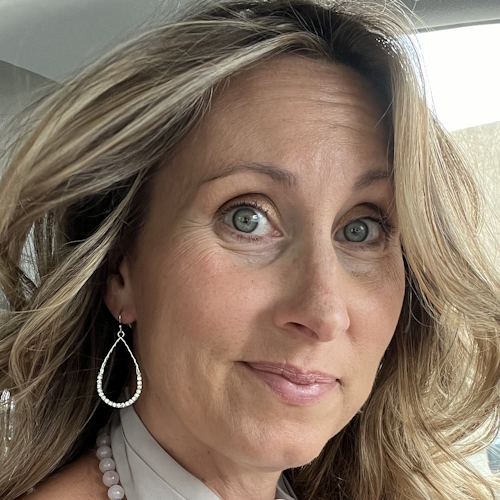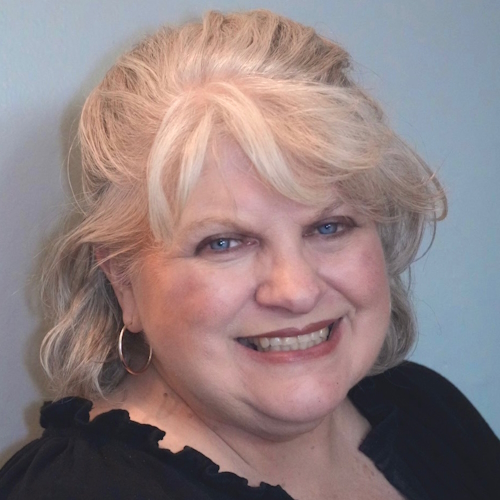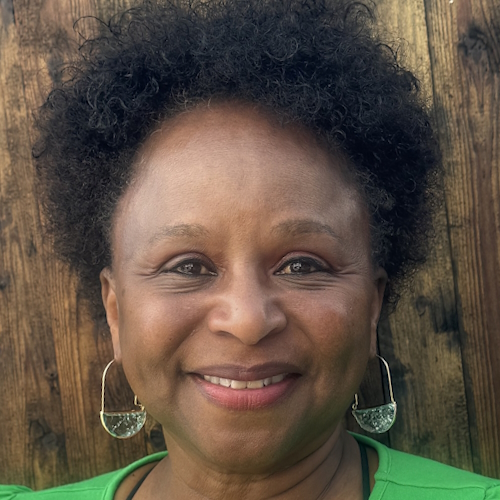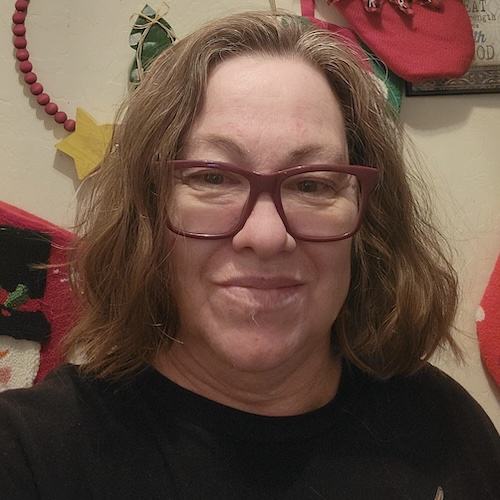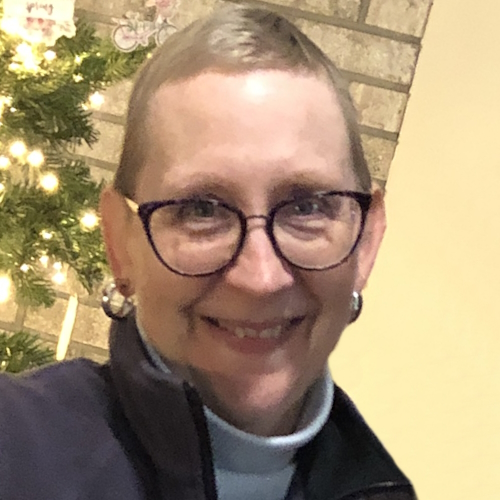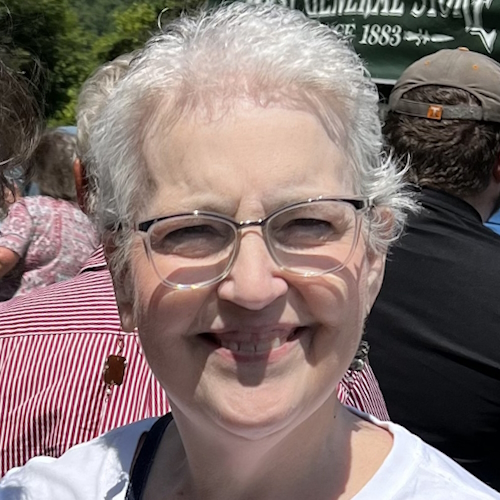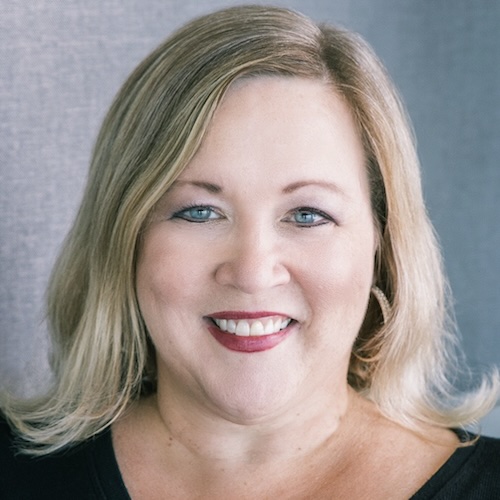Lexie’s High-Grade Endometrial Stromal Sarcoma Story
Interviewed by: Taylor Scheib
Edited by: Katrina Villareal
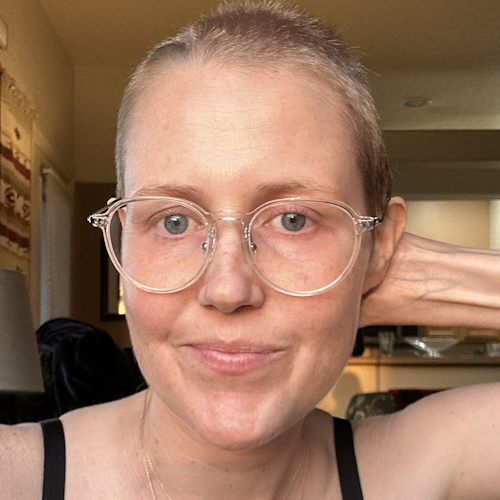
Lexie’s life changed dramatically when she was diagnosed with cancer three times. Her symptoms started with a prolonged period and severe cramps. Initially misdiagnosed, she eventually discovered she had cancer. The first treatment involved surgery, but subsequent relapses required more aggressive treatments.
During her first relapse, severe cramps led to the discovery of a softball-sized mass. She underwent surgery and chemotherapy, maintaining a positive attitude with support from her husband and family.
Later, respiratory issues revealed another mass in her chest. Proton beam radiation followed by chemotherapy initially seemed successful, but cancer spread to her lung lining, necessitating further treatments.
Throughout her journey, Lexie faced severe side effects from chemotherapy. She learned the importance of self-advocacy in medical care and relied on her strong support system and medical team. She focuses on controlling what she can, finding silver linings, and encouraging others to seek support.

Thank you to Karyopharm for its support of our patient education program! The Patient Story retains full editorial control over all content.
This interview has been edited for clarity and length. This is not medical advice. Please consult with your healthcare provider for treatment decisions.
- Name: Lexie W.
- Diagnosis:
- High-Grade Endometrial Stromal Sarcoma
- Symptoms:
- Prolonged period
- Severe cramps
- Difficulty breathing
- Treatment:
- Surgery
- Chemotherapy
- Proton beam therapy
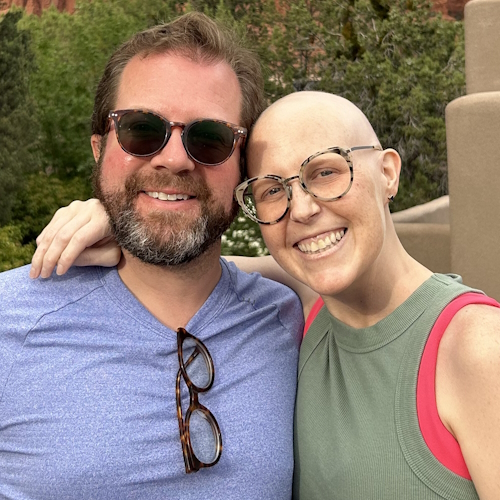
I had a period that lasted over a month. I kept thinking that it was normal and that it was going to stop.
Introduction
I live in Scottsdale, Arizona, but I grew up in a small town in Minnesota.
I love going to different coffee shops and checking out the vibe and the coffee. I love hiking and being out in nature during the day. I did a lot of camping growing up. That was usually our vacation.
I love to travel and go to different places. It’s fun to see different cultures. I love to spend time with friends and family.
I have been diagnosed with cancer three times. What I have now is high-grade endometrial stromal sarcoma. It was low-grade at first, then it became high-grade.
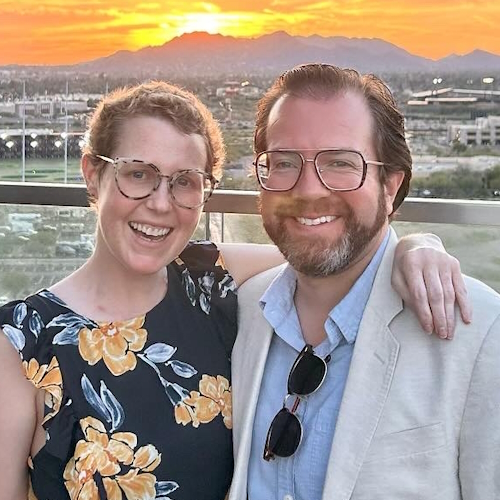
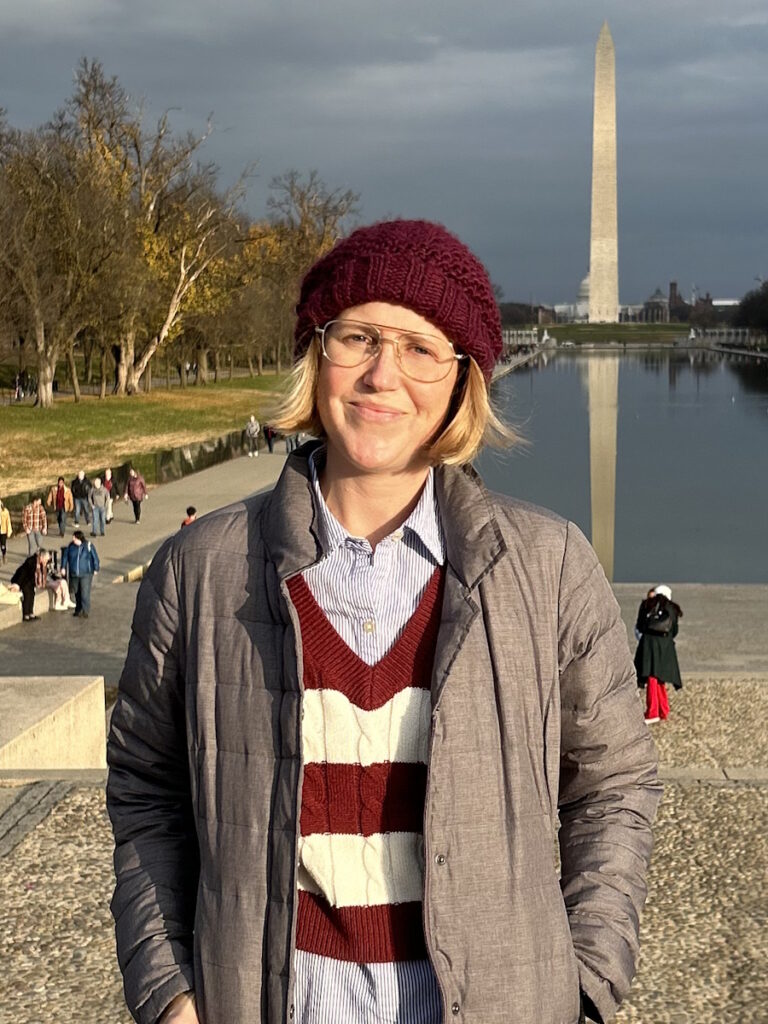
Initial Cancer Diagnosis
One time, I experienced intense cramps but I knew they weren’t period cramps. I know my body very well and I knew that something was off, so I went to the emergency room. They gave me Midol and sent me home.
Another time, I had a period that lasted over a month. I kept thinking that it was normal and that it was going to stop, but my sister told me I needed to get checked so she scheduled an appointment for me.
I was eventually diagnosed with low-grade endometrial cancer, but I didn’t do chemotherapy or radiation. I felt I got off a little easier, having to undergo surgeries and then continue living my life.
A doctor came in and said, ‘You’ve got a huge mass the size of a softball that’s pushing up on stuff.’ I asked, ‘When are we going to find out if it’s cancer?’ He said, ‘It is.’
First Relapse
Symptoms
I experienced very similar symptoms and I was still being so ignorant of it. I didn’t think of cancer, which was crazy to me, but that’s how I live my life. I don’t try to allow those thoughts to come in too often.
At the time, my husband was traveling for work. I was walking with a friend and I was a little bit hunched over because I was having a lot of intense cramp-like feelings. I kept telling her I thought it was my appendix, thinking it was appendicitis.
I went to the ER and that was pretty tough because I was by myself. After they ran all the tests, a doctor came in and said, “You’ve got a huge mass the size of a softball that’s pushing up on stuff.” I asked, “When are we going to find out if it’s cancer?” He said, “It is. We can tell,” so that was tough.
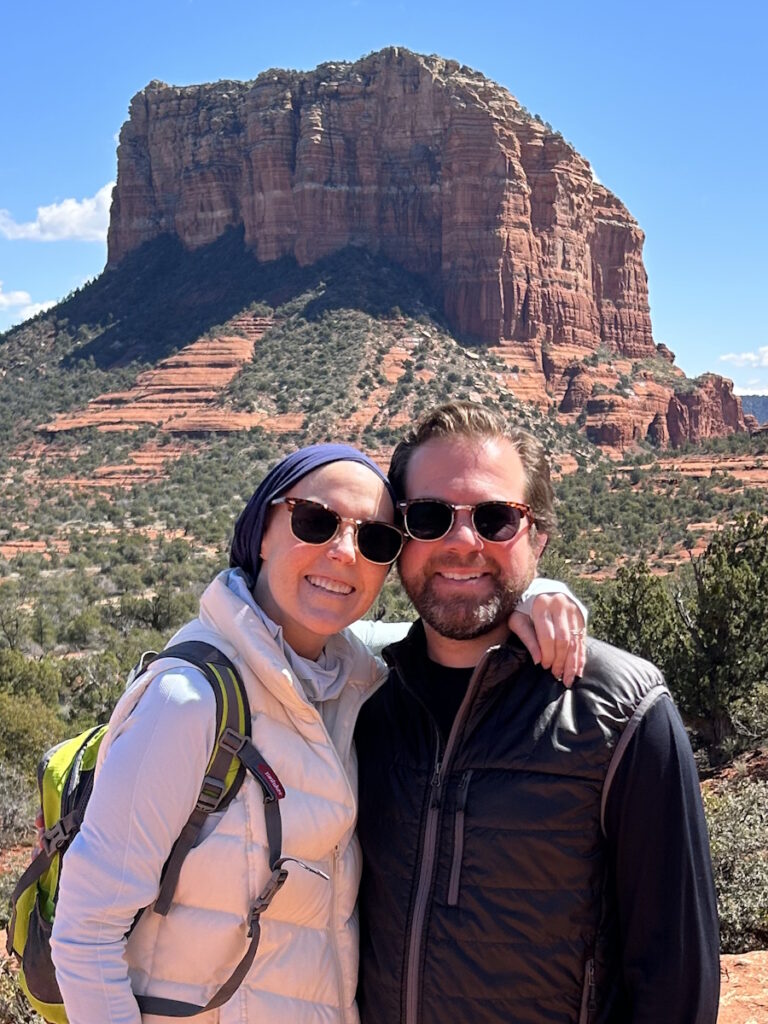
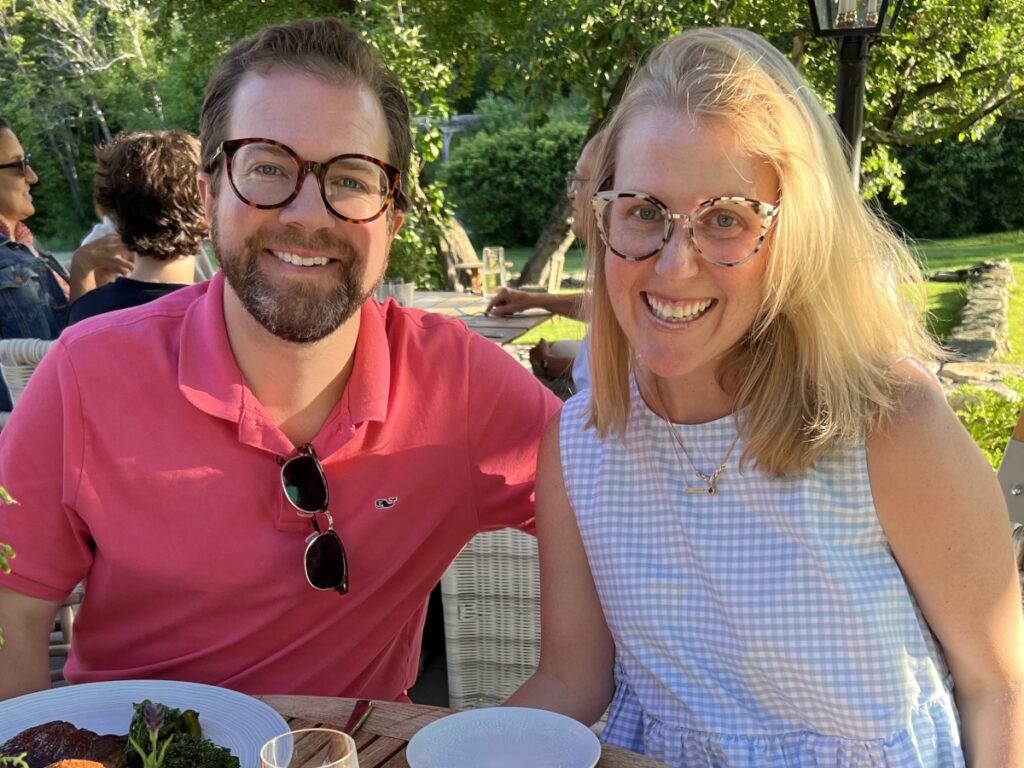
Reaction to the Relapse
I was overwhelmed, but I never felt like my life was over. I thought it was another fight I was going to have to fight. It was more about putting my game face on. It was another obstacle in front of me that I had to conquer.
It was tough to make the phone call to my husband. I told him I was going to the ER and he knew the entire time what it could be. When I called, I could barely get words out. He said, “I’m on my way.” It’s so good to have such a good support system, so that was tough, but we got through it.
They all came to the same conclusion. Chemotherapy was necessary knowing that I already had cancer once before.
Treatment
I ended up going through surgery to get the mass out and then I had to decide whether I was going to do chemotherapy or not to make sure that we got rid of all cancer cells.
Make sure that you get a second opinion so that you’re as informed as possible before making a treatment decision. I ended up getting the opinion of a few different doctors. I gave them all of my test results and they all came to the same conclusion. Chemotherapy was necessary knowing that I already had cancer once before and it came back and is now high-grade.
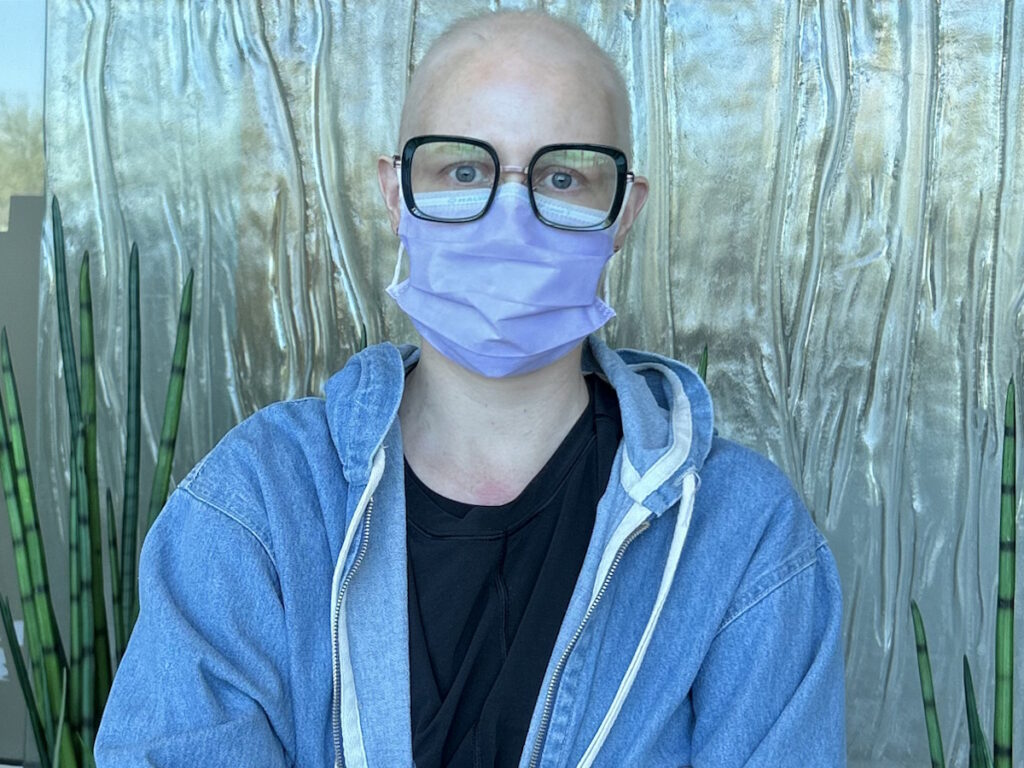
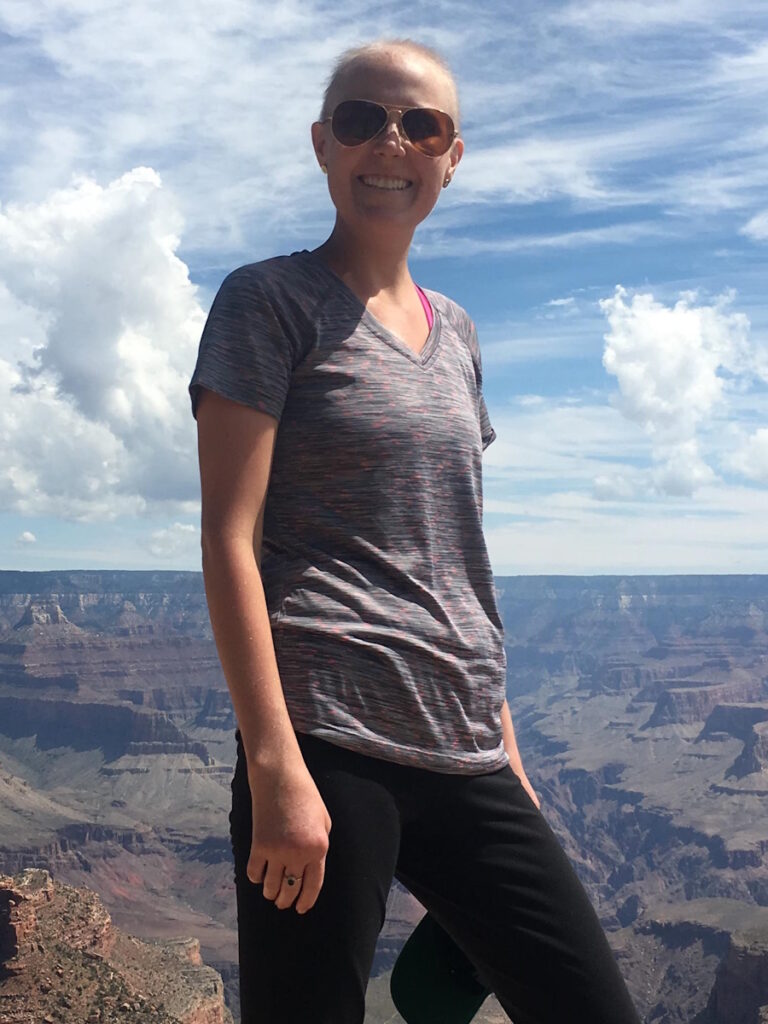
Side Effects of Chemotherapy
Chemotherapy was intense. I also got pneumonia during treatment. There was one point when I was lying on the floor and, in that moment, I felt like my life was over because I was so done that I could not fight anymore.
Chemotherapy was brutal on me. The fatigue was pretty intense. The brain fog was pretty bad too. I had hair loss, but it never mattered to me, which is crazy because I was so superficial growing up.
Since the first time I got cancer, one of the silver linings is my priorities changed. It wasn’t about making sure my hair or makeup was perfect. I couldn’t care less. There was hair loss, but I never cared about wearing a wig. The only time I wear a head cover is to protect myself from the sun, but otherwise, it’s part of my journey, so I go with it.
I was exhausted. I’ve already done this twice. I didn’t want to do this again, but I wasn’t ready to give up.
Second Relapse
Symptoms
I’ve gone through cancer twice and I thought a cold was going to knock me out because, at the time, I couldn’t breathe very well and I was fatigued. I thought it was COVID.
I went to the ER because I also couldn’t breathe. They ran a test and said I didn’t have COVID. They ran a few tests to make sure and did a scan. The doctor came in and said, “You have a big mass in your chest that is pushing up on all of the important tubes that help you breathe.”
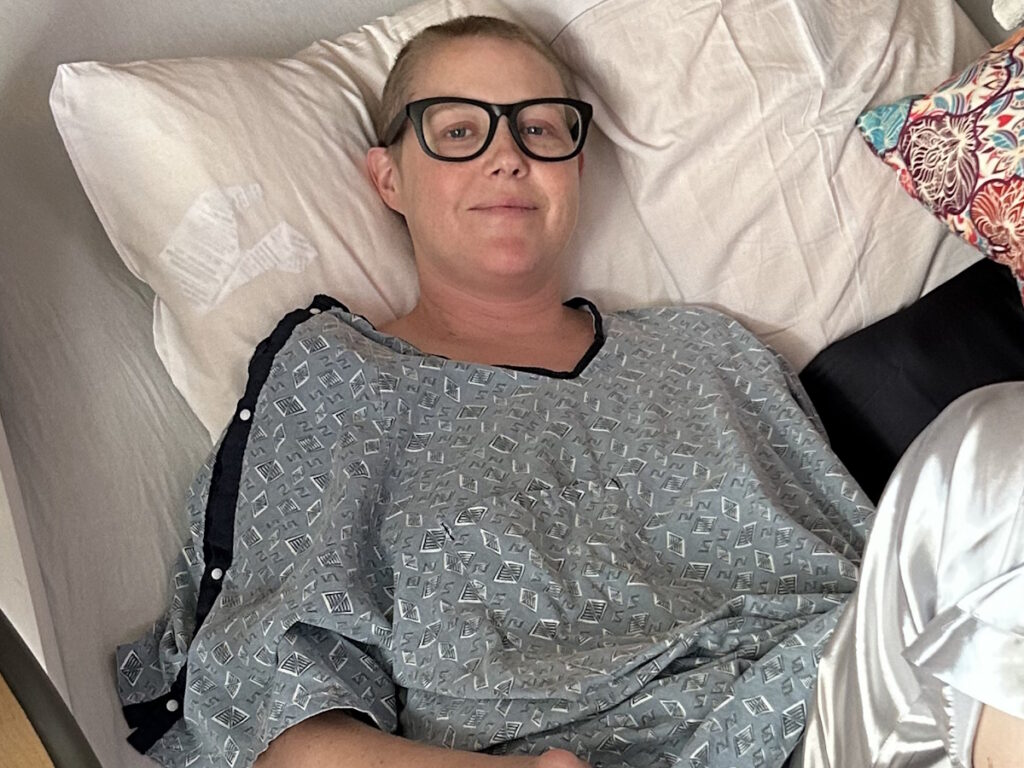
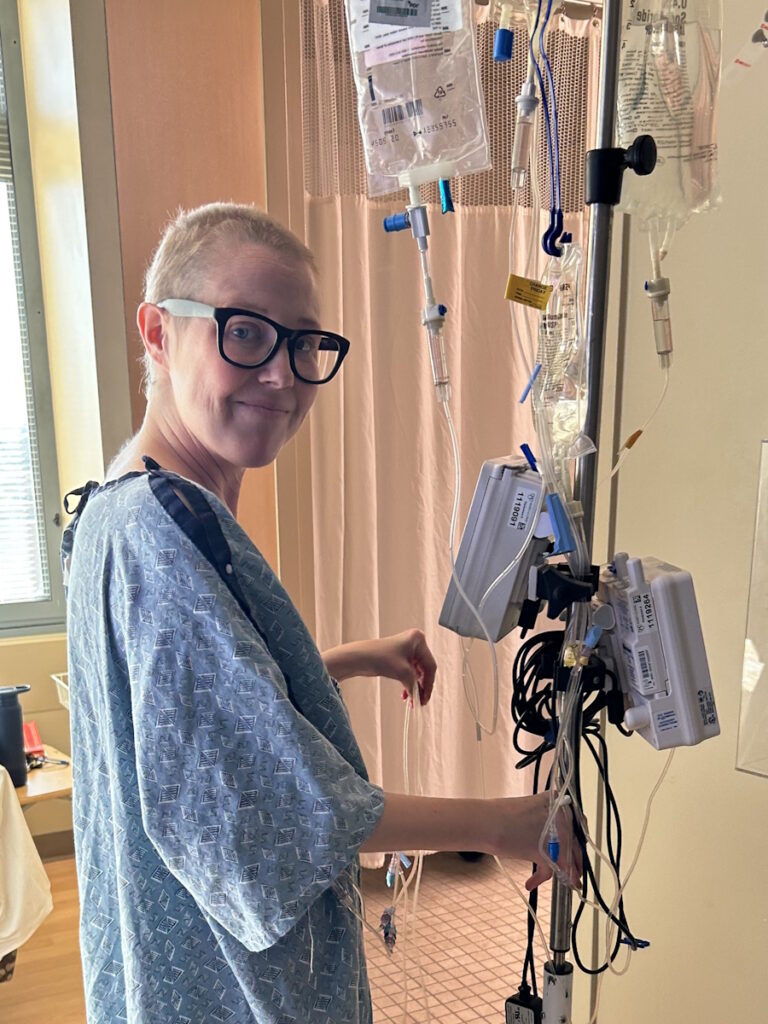
Treatment Decision-Making
I thought that they could remove the mass and then we were good, but the mass was next to some important organs. At that moment, I was exhausted. I’ve already done this twice. I didn’t want to do this again, but I wasn’t ready to give up.
After my first relapse and going through chemotherapy, I told my family that if it happened again, we’d be waving the white flag. I couldn’t go through the treatments again. It was too much. That was a hard pill for my family to swallow because it could cut my life short.
But when I was put in the actual situation, I decided I wasn’t done yet. I still had too much to do in my life. It was difficult because I had to think through. Was this something I wanted to do? Did I want to go through the different treatment options? Is this going to affect my quality of life? That’s how I choose to make my decisions these days.
When I looked at my PET scans, it looked like everything was gone. The only thing that was showing was a little bit of red near the scar tissue.
We ended up not doing surgery. We did proton beam radiation, which is different from the traditional one. I was so grateful to be able to go to a facility that had that available because that’s not very common everywhere. It has fewer short-term and long-term side effects.
After radiation, I did three cycles of chemotherapy. The radiation seemed to work, so that was great news.
When I looked at my PET scans, it looked like everything was gone. The only thing that was showing was a little bit of red near the scar tissue. According to my radiologist and doctor, they were pretty sure it was scarring, so I should be good to go and continue to live my life. We could do a couple more rounds, but ultimately, it was my decision. I weighed the pros and cons, and I felt good that it was gone.
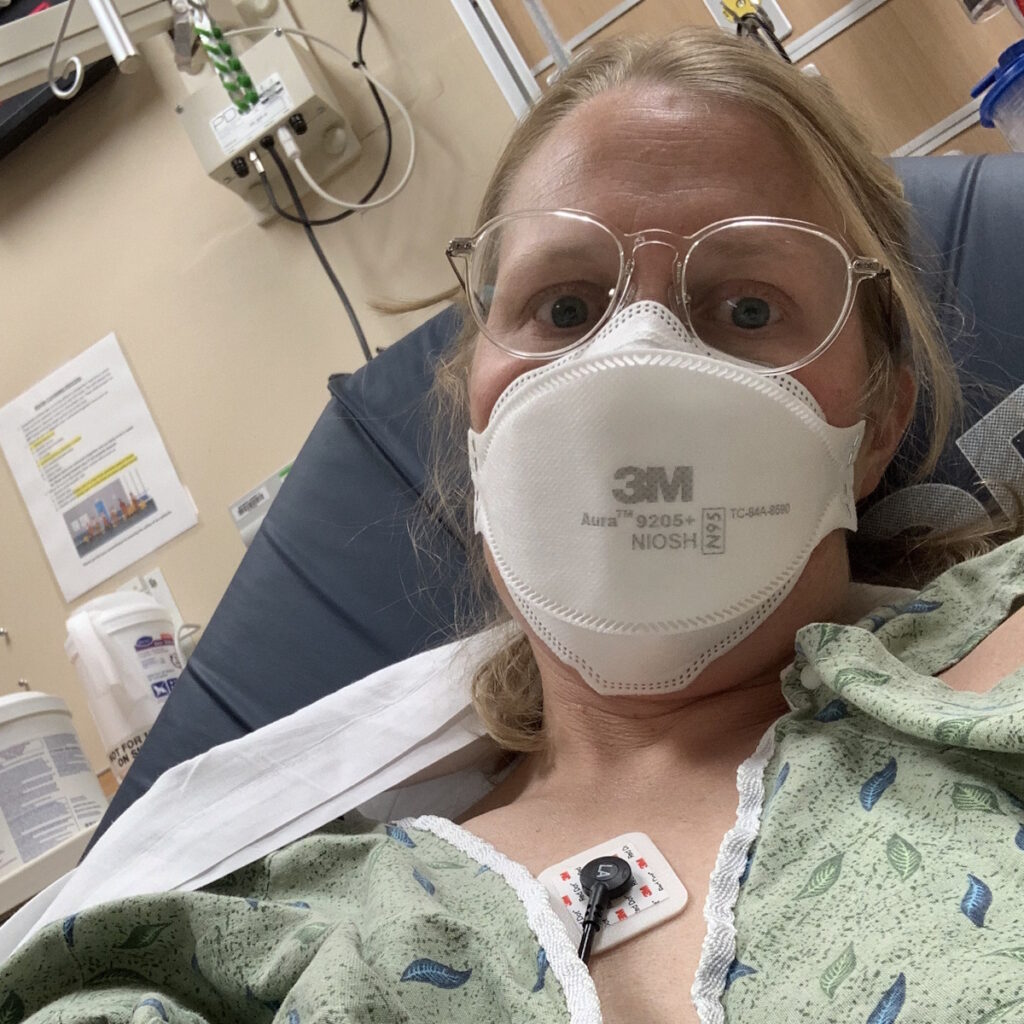
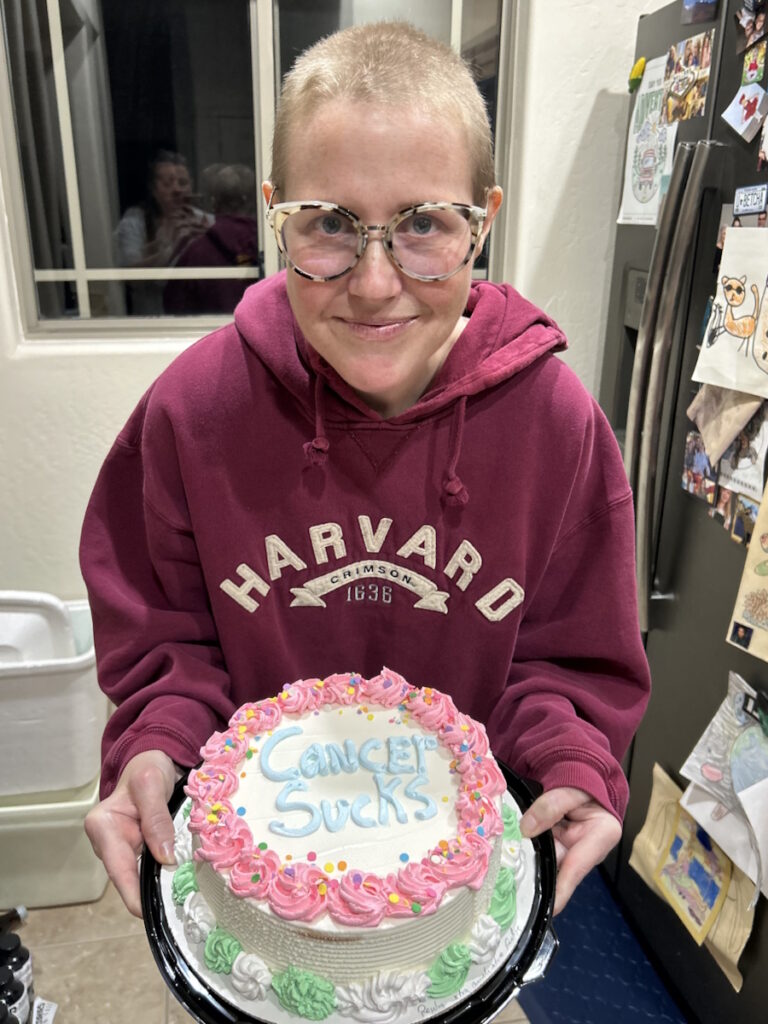
Cancer Spread
I was able to live my life normally for a couple of months, so it was a nice little reprieve from a mental health standpoint. I needed it because I was tired of fighting.
I did my follow-up PET scan a couple of months later, which showed it had spread. It’s in the lining of my lungs. I don’t say I regretted my decision, but it was the decision I made.
Treatment
I had to do a lung surgery. I’ve been doing chemotherapy. I’m cautiously optimistic. I hope that the PET scan will show that it worked because I had to make another hard decision of what type of treatment plan I wanted to go with for this next round.
I had three different options. I took some time to think. I was tired of it. I wanted to move on with my life. I went with the most aggressive options, which also had the highest risk. If the PET scan doesn’t show what I hope and believe it will show, then I don’t have a whole lot of options.
I have a decent amount of anxiety, but I’ve been raised to focus on what I can control and then let the rest go.
Having a Strong Support System
With the medical team that I have, it’s a collaboration. They keep me informed and give me all the options. If they believe an option to be better than the others, they’re going to voice their expert opinion. One thing that I like about where I go now is they have a tumor board. As we talk about self-advocacy and getting second opinions, they’ve already integrated those into their model, which is so reassuring.
If they come across unique cases that they’re not as exposed to, they bring the case to the tumor board, so they can weigh in. They bring the information back to the patient to help the patient make an informed decision.
Because of that collaboration, I don’t feel like I’m on an island. All of my family members rally together during these times. They try to get as much information as they can and filter what’s valuable to help me make an informed decision. It’s a lot of weight to be the sole decider, but I guess that’s part of life. We have to make decisions all the time. How do you do that successfully? It’s a team effort.
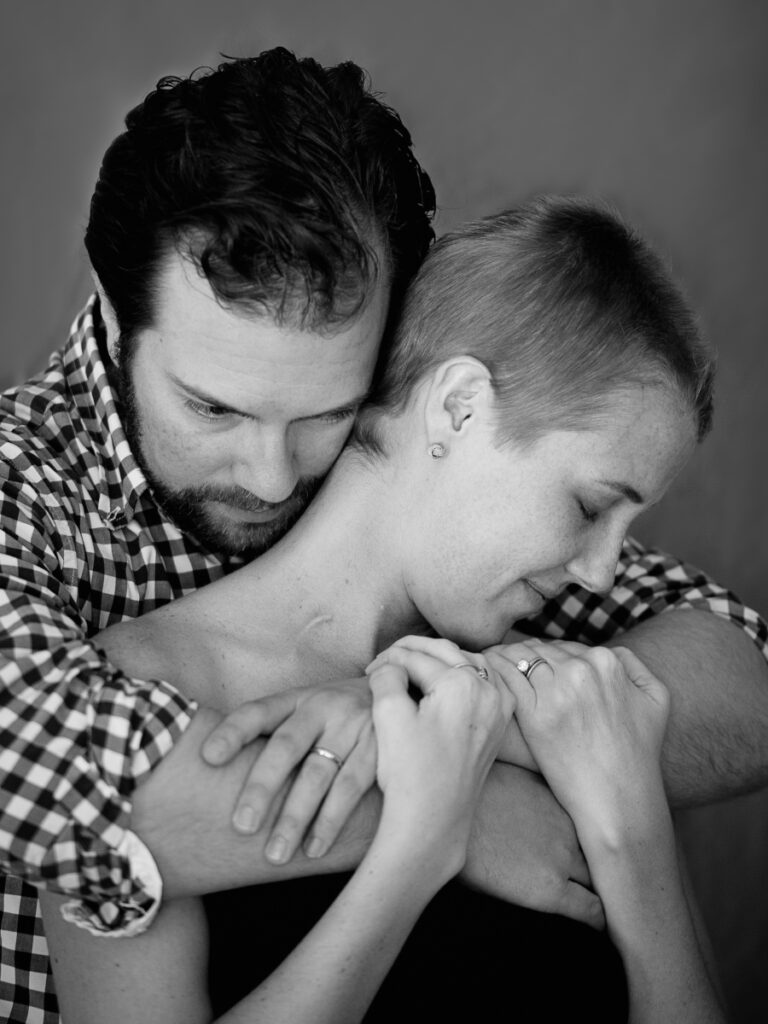
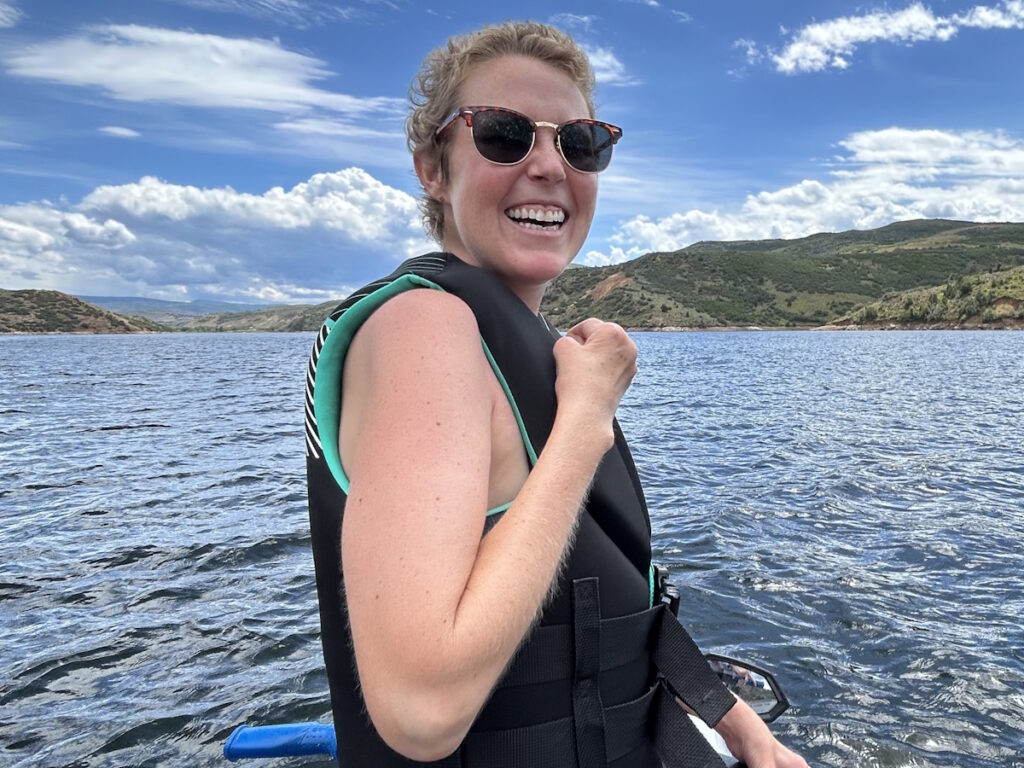
Living Life
I’m like a duck where I’m calm on top of the water and swimming for my life underneath. I have a decent amount of anxiety, but I’ve been raised to focus on what I can control and then let the rest go.
There’s a lot in my life that I cannot control and this is one of those things. I remind myself that I’m doing everything that I can and I have to be okay with it. Then let the rest be what it is.
I didn’t understand that I could advocate for myself. You know what’s best for you, so it’s important to push for what you know is right.
Importance of Self-Advocacy
Self-advocacy is so important to be able to make an informed decision. You can’t do that without getting all of the information and advocating for what you feel is right. The reason why I think it’s so important to push for what you feel is right is because of my situation. They kept telling me that it was just period cramps when I knew it wasn’t, but they’re the experts and so I felt a little bit defeated and didn’t necessarily know what direction to take.
I needed my sister to advocate for me because I didn’t know what self-advocacy was. It was my first time going through cancer, so I didn’t understand that I could advocate for myself. You know what’s best for you, so it’s important to push for what you know is right.
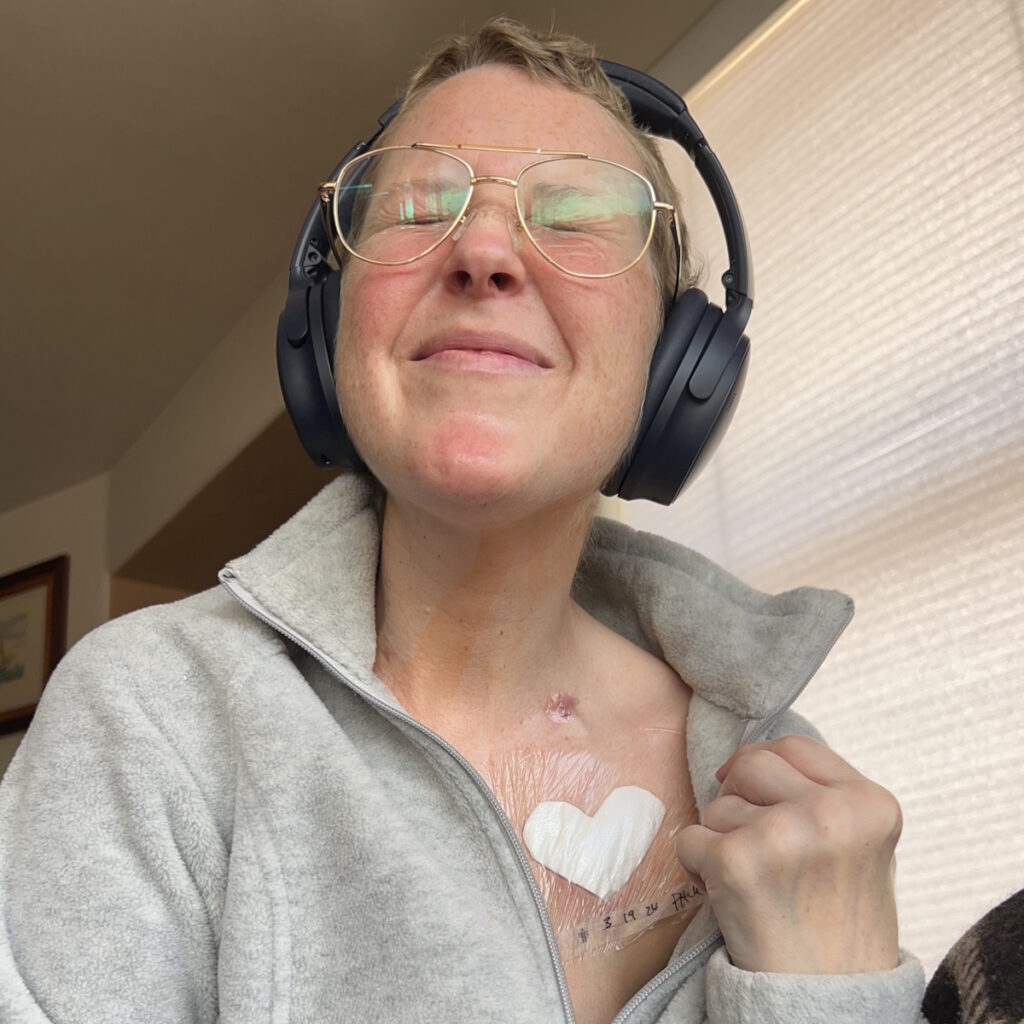
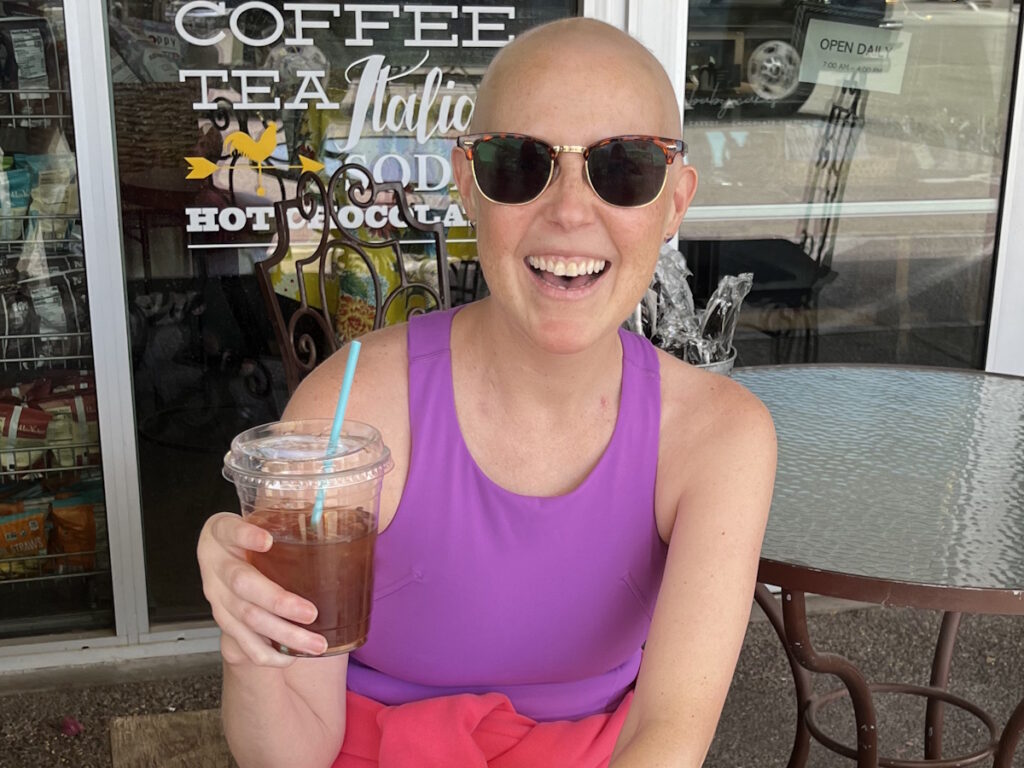
Words of Advice
Live positively because the opposite sounds so miserable. Of course, we all have our moments. I’m not saying I’m positive 24/7; that’s unrealistic. I have days when I feel down. You need to have more up days than down days. I choose to be positive.
Go big or go home because life is too short. Take full advantage of your situation and find the silver lining.
You’re not alone. I don’t want people to ever feel like they’re alone. There are communities and resources out there to help you.
Life is too short. Take full advantage of your situation and find the silver lining.

Special thanks again to Karyopharm for its support of our independent patient education content. The Patient Story retains full editorial control.

Inspired by Lexie's story?
Share your story, too!
